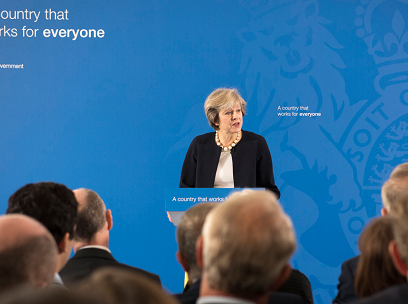
EU leaders have formally agreed to a Brexit deal at a Brussels summit, urging Britons to back May’s package.
Amid criticism of the deal from politicians on all sides of Britain’s EU debate, European Commission chief Jean-Claude Juncker says the UK cannot hope to negotiate better terms before its departure in March.
“I am totally convinced this is the only deal possible,” he said on Sunday.
“Those who think that by rejecting the deal that they would have a better deal will be disappointed the first seconds after the rejection.”
For once, Prime Minister Theresa May was in complete agreement.
“This is the deal that is on the table,” she said.
“It is the best possible deal. It is the only deal.”
Business welcomes stability
Now the EU has approved it, May must sell the deal to British parliamentarians – a huge task considering the intense opposition from both pro-Brexit and pro-EU MPs.
May said parliament would get a vote before Christmas and argued MPs had a duty to “deliver Brexit” as voters had decided in a 2016 referendum.
But while Opposition Leader Jeremy Corbyn said his Labour Party would vote against the deal, calling the agreement a “bad deal for the country” that “leaves us with the worst of all worlds”, business leaders have largely welcomed a deal to prevent a “cliff-edge” scenario, where the UK would leave the EU with no deal whatsoever. This, they say, would mean higher prices and loss of access to some every day items for consumers.
Earlier this month, the British Retail Consortium urged politicians to accept May’s Brexit plan rather than face the grave consequences of an exit with no deal in place.
Last month, credit ratings agency Moody’s warned that “a disorderly exit from the EU” could lead to currency devaluation and delays at ports, resulting in a hit to economic growth and consumer confidence.
Compromise that satisfies no one
The agreement must still be ratified by the European Parliament, something its president, Antonio Tajani, said would likely take place early in 2019.
Tajani said a “large majority” of European parliamentarians supported the deal.
The same cannot be said of British parliamentarians.
Brexiteers think the deal will leave the UK tied too closely to EU rules, while pro-Europeans say it will erect new barriers between Britain and the bloc.
Pro-Brexit Conservative politician Iain Duncan Smith said on Sunday the deal “has ceded too much control” to Brussels.
AAP





